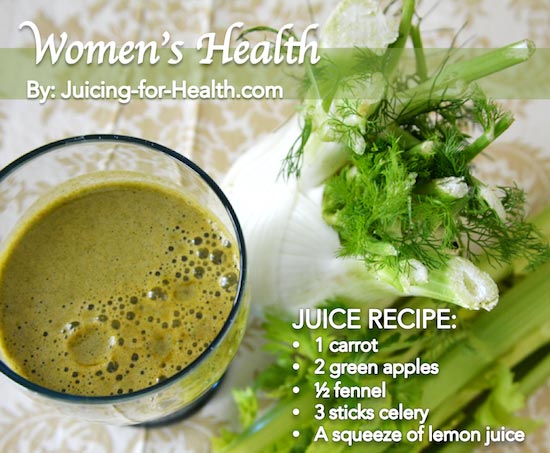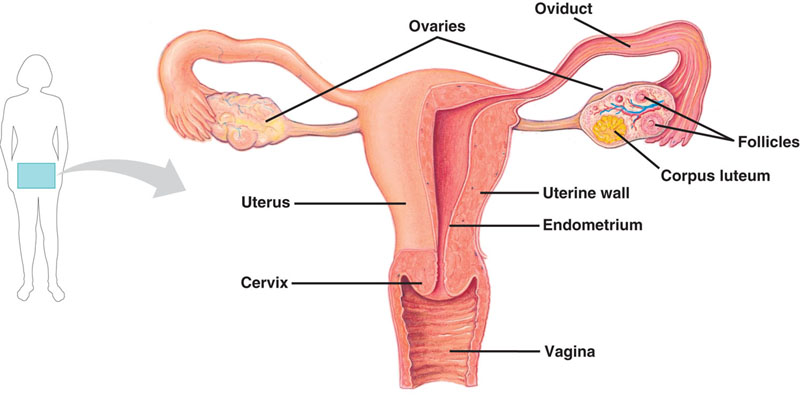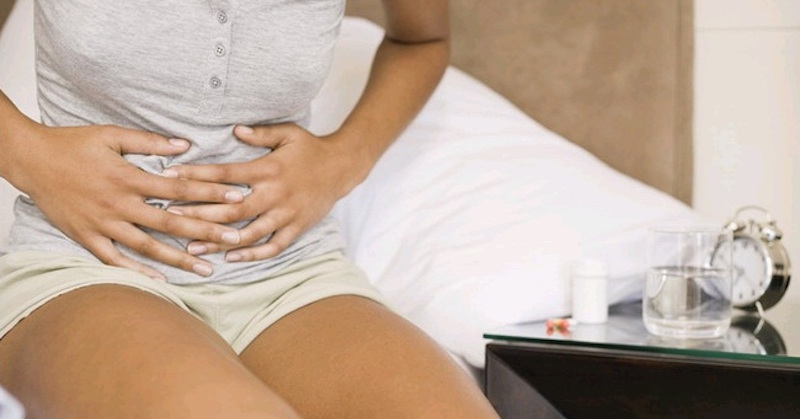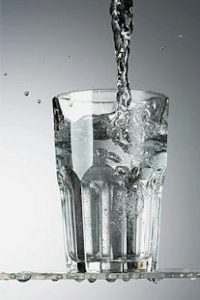Guide To Balancing Hormone Levels At Every Stage Of Your Womanhood
Last updated on
Women, when your sexual health is in tip-top condition, you will appreciate and enjoy being a woman.
To All You Beautiful Women
This page is dedicated to all you women out there. Women, know that you are a beautiful being created in the image of God. Be proud to be a woman, care for your body … for your own sake, and for your family’s sake. When we have our sexual health in tip-top condition, we can begin to appreciate and enjoy being a woman.
As a woman, our nutritional needs are varied and different at every stage of our lives. Though I won’t be able to cover every stage on this page, I would like to discuss our sexual health, our reproductive organs that were developed even when we were in our mother’s womb.
Way before you conceive, it is so important that you have a healthy lifestyle and dietary to prepare the way for your offspring.
The health of the baby you conceive would have his/her sexual health already formed while in your womb. In his/her growing-up years, further care of his/her dietary would determine their chances of fertility later in life.
The amount and the degree of discomfort a woman goes through before, during and after her menstruation depend on a variety of factors such as her lifestyle (smoking and drinking), dietary, exercise, culture and genetics. And the same goes with the discomfort encountered before, during and after menopause.
Our choice of lifestyle and foods play a major role in our overall sexual health that is our whole make-up as a woman. Why then, don’t we take enough trouble to ensure our sexual and reproductive organs are well? I believe it is a matter of choice … to decide that we want to be well … and go all out to make those necessary changes to bring about restoration to our health.
A Woman’s Sex Hormones
In a woman, the balance between the progesterone and estrogen hormones are so important. Excessive estrogen has been associated with increased risks of breast cancer, endometriosis, fibroids, ovarian cysts and all the PMS symptoms you may encounter.
PMS symptoms are early warnings of estrogen dominance. Other signs are depression, loss of sex drive, carbo cravings, heavy periods, weight gain, swelling breasts and water retention.
Some of the causes of excessive estrogen hormones in the body are caused by consumption of commercial meat (which have been fed with hormones for quicker growth); dairy products, artificial fertilizers and pesticides that get into our foods, soft plastics that have somehow leached into our foods, birth control pills and HRT pills (hormone replacement therapy).
Premenstrual Syndrome
Premenstrual syndrome (PMS) or premenstrual tension (PMT) are symptoms that many women experience about seven to ten days before their periods.
Some of the discomforts experienced are mood swings, depression, anxiety, insomnia, food cravings, bloating, and in severe cases even epilepsy.
Some women experience heightened emotions and hypersensitivity a few days before their periods.
Other symptoms include headaches, backaches, fatigue, restlessness and even weight gain. If you encounter any of these symptoms described above, you need to start making changes to your lifestyle/dietary to the degree of discomfort you are facing.
Read more about how you can reduce PMS symptoms.
Hot Flashes and Menopause
When a woman reaches the end of her reproductive capabilities, usually between the ages from 45 to 55, it is said that she is entering perimenopause. Most women would experience some of the symptoms as in PMS above. Other possible symptoms are hot flashes, night sweats, vaginal dryness and reduced sex drive.
When entering menopause, a woman’s body adjusts to lower hormone levels, and encounters declining levels of melatonin, estrogens, progesterone and testosterone. This adjustment causes the menopause symptoms as the ovaries slowly cease production of eggs.
During this time, menopausal women are more susceptible to bone loss, hair-thinning and osteoporosis. Hot flashes is the body’s natural response to the erratic hormonal level changes occurring in the body during this time.
Recommended Lifestyle/Dietary Changes
— believe that by making changes to your lifestyle and dietary, and sticking to it, it can make a huge difference in the health of your reproductive organs on the whole. I dare say so because I have been practicing these for most part of my life and do not encounter any PMS symptoms as my menstruation come and go every month. Nor do I anticipate any mood swings or any other serious symptoms when I later enter menopause.
Here are some guidelines that will generally help keep your hormones in balance, and reduce most of the symptoms you experience before, during or after your menstruation/menopause, depending on where you are in life now. It is never too late to start.
- Stop smoking. Nicotine and carbon monoxide in the blood prevents your blood from carrying nutrition to your lungs and other parts of your body, making you age faster. When you smoke, you might as well don’t bother about nutrition as it defeats the purpose if you want to be healthy.
- Cut back on alcohol. Heavy drinking depresses the brain functions, causes mood changes and may even cause depression. It affects your body’s production and use of estrogen, inhibits your sexual drive and reduce your sexual enjoyment. Internally, alcohol does untold damages to your liver and may cause internal bleeding.
- Reduce meat intake. Most commercially grown animals are fed with hormones for quick growth and profit. Avoid animal meat where possible, or consume only organic meat that are free from hormone jabs. Animal fats are especially harmful and create havoc to your sexual health, thus your sexual drive, so try to omit them from your diet. High intake of animal fats compromises breast health, causing infections, inflammation, cyst and ultimately breast cancer.
- Reduce dairy products intake. Avoid these for the same reasons why you would avoid meat. Dairy products are high in harmful fats, animal protein and loaded with synthetic bovine growth hormones (rBGH) that have been linked to breast cancer. Pasteurized milk poses a greater risk as it increases the concentration of the deadly rBGH.
- Stop taking hormone replacement therapy (HRT). Talk to your doctor about stopping your synthetic HRT by replacing with plant-based alternatives. Make informed decisions and know what you are taking. Some of the common synthetic HRT products are Premarin (Pregnant Mare’s Urine), Prempro, Premphase or Provera. Some of the serious side effects of HRT: Headache, stomach cramps and bloating, weight changes, reduced sex drive and performance, nervousness, dark patches on skin, fluid retention, breast tenderness, unusual bleeding, dark colored urine and light colored stool.
- Avoid coffee, tea, chocolate, soft drinks, salt and sugar. These have been known to aggravate your nerves, are inorganic and cannot be assimilated by your cells, causing a string of health problems and may even leach calcium from your bones leading to crippling osteoporosis.
- Go organic. Where possible, always go for organic fruits and vegetables or invest in a good ozonizer to eliminate most of the pesticides. For juicing, invest in a good gear juicer as they are able to separate the chemicals and pesticides from your juice for safe consumption.
- Take your Essential Fatty Acids everyday. Most women neglect to take Essential Fatty Acids (EFAs) that are so essential to their overall sexual health. Some good sources are from seeds, their oils, or supplements from evening primrose or borage oil and flaxseed oil. I find that the best way to have my daily dosage is by taking 1-2 tablespoons of fresh flaxseed oil that is so rich in omega-3.
Include plenty of fresh fruits and vegetables in your diet. They are good sources of fiber, vitamins and minerals that you need for overall good health. Fibrous foods help reduce swelling and tenderness in the breasts by absorbing the excess estrogen to be eliminated. Make it a point to eat a large bowl of fresh salad every day. For a healthy dressing, try extra virgin olive oil or flaxseed oil with apple cider vinegar and raw honey.
- Drink plenty of water. Plenty of purified water is necessary for good flushing of your system to rid your body of toxins. Learn how much water your body needs daily. Drinking plenty of water would not cause fluid retention before/during your menstruation, but will actually help your body to be rid of excess fluid and reduce bloating.
- Take optimum nutrition. Look around for high quality supplements and include optimal levels of the B vitamins, vitamin E, magnesium and zinc which can less be found in fruits and vegetables.
- Reduce your stress level. Identify the sources of stress in your life and do not let prolonged stress control your life. Once you identify the sources, actively make changes to your circumstances and also make positive changes to the way you handle and react/respond to stress. I have seen how prolonged stress can cause cancer, and it’s real.
- Practice self care. Women tend to get really busy being a wife and mother and hold many more titles to their names. Take out an hour or two once or twice a week to do something “selfish”, “just-for-you” and “you-time”. A self-care plan will help prevent negative feelings and boost your energy to take care of business.
- Exercise. Include exercise in your weekly schedule. Moderate exercise three times a week for at least an hour each time with a combination of aerobics and anaerobic weight training. Avoid excessive exercise, more is not always better in this case as it causes oxidation in your body, making you age faster. Low impact exercises like walking, cycling and swimming are some of the best forms of exercise.
- Sleep. Finally, sleeping at least eight hours a day is so important but often overlooked. Women tend to get so busy that 24 hours is never enough. I know that feeling, but we really need to schedule in to sleep before 11.00pm every night because this is the time when our body starts to detoxify. While we’re having our restful sleep, our body makes use and process all the good things we ate/did during the day.
For the mothers-to-be or mothers-wannabe, refer to the Pregnancy Nutritional Guide page to prepare the way for your healthy baby.
Recommended Healing Foods for Women’s Sexual Health
Drinking fresh juices is one of the best ways to help your body absorb nutrition quicker and more effectively. As mentioned above, either invest in a good gear juicer or use organic produce to prevent further ingestion of pesticides that do harm to your reproductive organs.
Green juices contain the highest content of calcium and magnesium that are so necessary in maintaining the good health of your nerves, edema, reduce fatigue, irritability and depression. Alfalfa sprouts and wheatgrass juices are rich in dietary phytoestrogens that help regulate your hormones. Adding at least a glass of green juice into your daily diet will do much to gradually heal your body from inside out.
Cruciferous vegetables like kale, broccoli, cauliflower and cabbage are some of the best vegetables that contain a certain phytonutrient that significantly reduce risk of breast cancer. Add cabbage juice to your menu to increase the protective estrogen metabolites that help to reduce the risks of HRT-related cancer. Or celery for its organic sodium and minerals that hydrates the body cells and have an immense amount of health benefits, also for bone building.
Celery |
Cucumber |
Fennel |
|
Kale |
Spinach |
Cabbage |
Wheatgrass |
Cilantro |
Beetroot |
Ginger root |
Jicama |
Apple |
Papaya |
Tomato |
Avocado |
The above is just a very short list of all the fruits and vegetables that should be included in your diet, in place of processed foods.
Skin and juice one medium-sized beetroot with half a lemon or with a couple of limes. This juice tastes good and is very cleansing for the liver. However, beetroot is very potent so do not take more than twice a week if you are not used to it. Its potency may cause some light-headedness as toxins are being eliminated. Drink this regularly for good liver health and beautiful skin.
Watermelon is highly diuretic and helpful for eliminating excess fluids from the body, reducing water retention especially before and during menstruation. Drink a big glass of watermelon juice with some lemon/lime juice, everyday for 3-5 days leading up to your menstruation. You will need to keep going to the bathroom, but you will also eliminate fluid retention and bloating.
With each glass of juice, put in a thumb-sized ginger for its anti-microbial effect and that extra zing.
Some Suggested Combos (measurement for one portion):

- 1 cucumber + 2 medium-sized beetroot + ¼ lemon
- 2 green apples + 6 ribs of celery + 8-10 leaves of kale + ½ lemon
- 3 carrots + 6 ribs of celery + ¼ head of cabbage + a thumb-sized ginger
- 2 green apples + 1 fennel + ½ bunch of watercress + ½ lemon
- 2 carrots + 1 jicama + 1 fennel + ¼ lemon + a thumb-sized ginger
- Jumbo glasses of watermelon + squeeze of lemon juice
- 1 grapefruit + 2 oranges + 1 capsicum + ¼ lemon slice + thumb-size ginger
- 1 oz (1 shot) of wheatgrass juice + a squeeze of lemon juice
- Lemongrass-ginger tea
Learn how to make tasty green juices.
Some of the links I post on this site are affiliate links. If you go through them to make a purchase, I will earn a small commission (at no additional cost to you). However, note that I’m recommending these products because of their quality and that I have good experience using them, not because of the commission to be made.
Comments
Leave a Reply



 Include plenty of fresh fruits and vegetables in your diet. They are good sources of fiber, vitamins and minerals that you need for overall good health. Fibrous foods help reduce swelling and tenderness in the breasts by absorbing the excess estrogen to be eliminated. Make it a point to eat a large bowl of fresh salad every day. For a healthy dressing, try extra virgin olive oil or flaxseed oil with apple cider vinegar and
Include plenty of fresh fruits and vegetables in your diet. They are good sources of fiber, vitamins and minerals that you need for overall good health. Fibrous foods help reduce swelling and tenderness in the breasts by absorbing the excess estrogen to be eliminated. Make it a point to eat a large bowl of fresh salad every day. For a healthy dressing, try extra virgin olive oil or flaxseed oil with apple cider vinegar and 































 JOIN OVER
JOIN OVER
Please contact me I have hellp mee
My contract number 8278656937